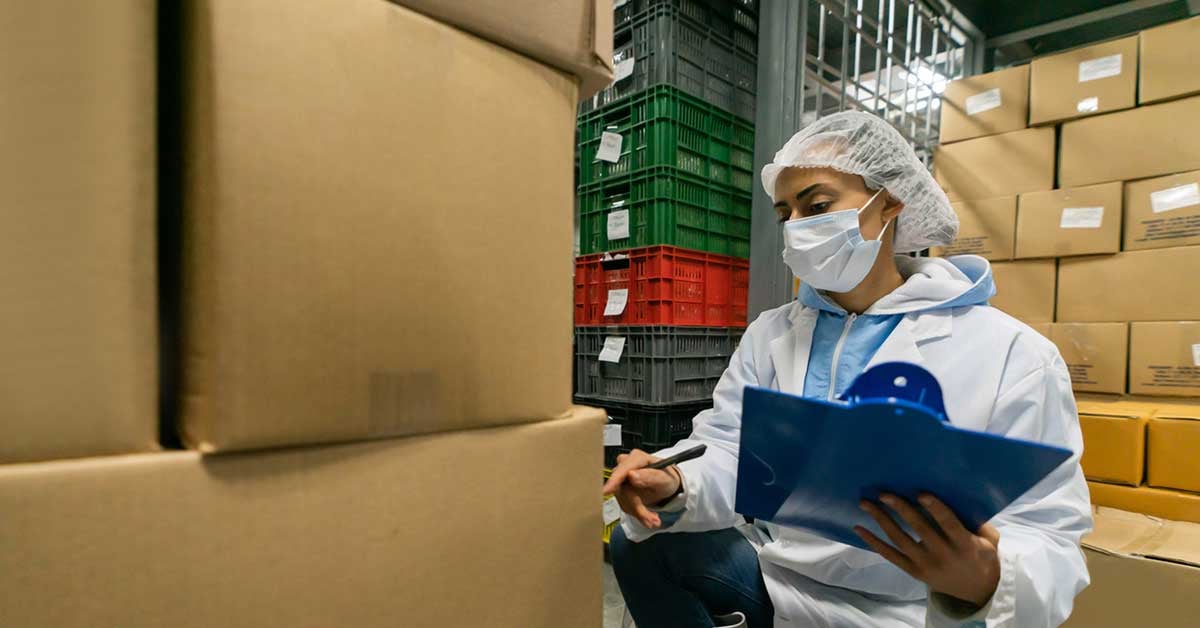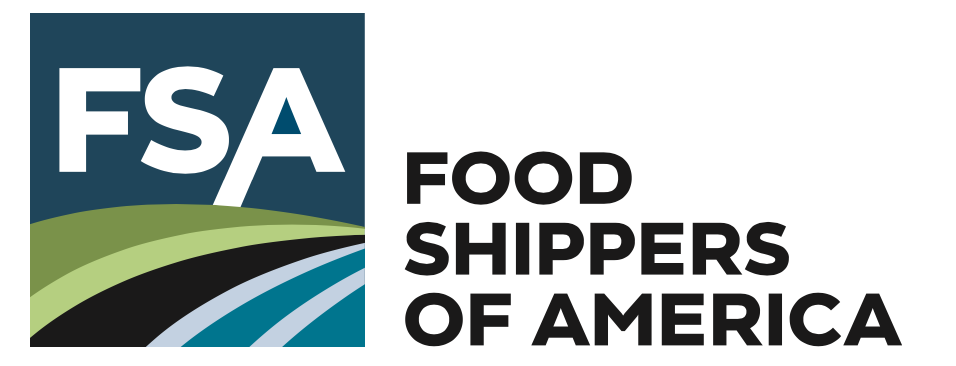Ask Our Experts: Food Safety & Security
by Staff, on Dec 11, 2023 11:58:25 AM

From farm to shelf, the many links in the sophisticated food chain must be diligently managed to ensure that the food your customers purchase is safe to consume. For most food manufacturers and retailers, along with their transportation and logistics providers, there are three major concerns in food chain safety and security: temperature control management, cross contamination, and cargo tampering and theft.
 The Editorial Team at Food Shippers of America sat down to discuss food safety issues with Craig Rykaczewski, Senior Director of Quality Systems for Armada, an integrated supply chain solutions provider that delivers competitive advantages and improves business performance for customers in the food and beverage industry. This interview is particularly relevant because Armada has become one of the largest outsourced logistics providers to the U.S. foodservice industry.
The Editorial Team at Food Shippers of America sat down to discuss food safety issues with Craig Rykaczewski, Senior Director of Quality Systems for Armada, an integrated supply chain solutions provider that delivers competitive advantages and improves business performance for customers in the food and beverage industry. This interview is particularly relevant because Armada has become one of the largest outsourced logistics providers to the U.S. foodservice industry.
What do you see as the most significant food safety and security challenges for Armada?
Rykaczewski: Any load that has been tampered with could potentially cause harm to our client’s customers, the general public. Our clients rely on us to maintain the integrity of their products while in our custody, and we take that responsibility very seriously.
What proactive steps has Armada taken to help maximize food safety and security?
Rykaczewski: Armada has implemented policies and procedures in compliance with regulations, client expectations, and global food safety standards to ensure product integrity is maintained. We monitor regulatory and global food safety sources regularly to ensure we are aligned with current food safety legislation, global standards, and industry best practices.
Armada’s warehouse facilities voluntarily certifies to Safe Quality Food (SQF), a Global Food Safety Initiative (GFSI) benchmarked standard, to ensure our quality system meets the highest standards in food safety.
We also take it a step further and voluntarily certify to the minimum-security requirements of Customs Trade Partnership Against Terrorism (CTPAT), which is a U.S. Customs and Border Protection program that focuses on securing international supply chains. We leverage the CTPAT program requirements in development of our domestic programs where it helps mitigate risk, such as using ISO 17712 compliant trailer seals and verifying seals using the VVTT method:
V – View seal and trailer locking mechanisms; ensure they are OK
V – Verify seal number against BOL
T – Tug on seal to make sure it is affixed properly
T – Twist and turn the seal to make sure its components do not separate from one another, or any part of the seal becomes loose
We require that carrier partners monitor trailer seals while the load is in-transit and are required to advise us if there is an issue with trailer seals at any stop. We follow the rule that any load at rest is a load at risk.
Armada’s QA Team leads the investigation for any food safety/security issues that occur throughout the supply chain. By partnering with our supply chain partner’s Quality Assurance (QA) Teams, we are able to determine if products are safe to continue to their destination.
What advice would you give others to ensure food safety and security?
Rykaczewski: A well-developed quality system that is verified and validated is important to maintain the integrity of food products throughout the supply chain. A robust Corrective and Preventive Action (CAPA) program should always be part of this process to help with identifying root cause, prevent recurrence of food safety/security incidents, and to foster continuous improvement.
Does Armada do anything to help prevent cargo theft?
Rykaczewski: Armada’s QA Team monitors and periodically receives notification of “hot spots” for cargo theft. This information is communicated to business partners and stakeholders for awareness and for use in routing and identifying safe areas to stop during transit.
We work with our business partners to ensure trailer seals are used and monitored throughout the supply chain. If a seal is not present, then we require to be notified, so that we can initiate an investigation into the safety of the product.
In the past, Armada has worked with a vendor to provide trailer seal guard locks as a method to provide additional security to high value loads. We worked with supply chain partners on a specific lane to develop a return process that incorporated the use and return of these devices to add a higher level of protection to the standard seal process. The result was total reduction of seal breaks on the lane.
Like this kind of content? Subscribe to our "Food For Thought" eNewsletter!
Now more than ever, professionals consume info on the go. Distributed twice monthly, our "Food For Thought" e-newsletter allows readers to stay informed about timely and relevant industry topics and FSA news whether they're in the office or on the road. Topics range from capacity, rates and supply chain disruption to multimodal transportation strategy, leveraging technology, and talent management and retention. Learn More



